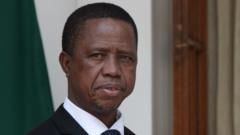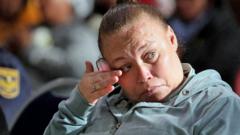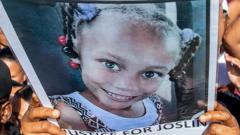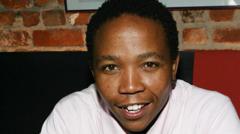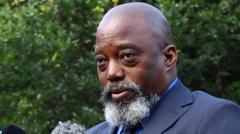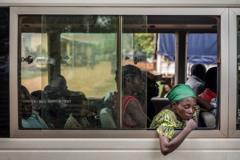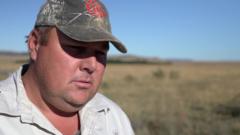The fragile coalition government in South Africa is in a precarious position following a contentious budget vote that has highlighted deep ideological rifts between the African National Congress and the Democratic Alliance. With increasing tensions and legal challenges arising, the stability of this national unity government hangs in the balance.
Turmoil in South Africa's Coalition Government: Will It Survive?

Turmoil in South Africa's Coalition Government: Will It Survive?
South Africa's coalition faces unprecedented challenges as key parties, ANC and DA, clash over budget policies, raising questions about the future of their partnership.
South Africa's coalition government appears to be on the brink of collapse as tensions surface between its two largest members, the African National Congress (ANC) and the Democratic Alliance (DA). The instability became evident during a crucial parliamentary vote on the national budget, where the DA opposed the fiscal framework, criticizing an increase in VAT and advocating for reduced government spending. In contrast, the ANC, which identifies as a centre-left party, resisted what it deemed an "austerity budget" demanded by the DA.
In a display of political maneuvering, the ANC garnered support from several smaller parties, facilitating the passage of the fiscal framework with 194 votes in favor versus 182 against. However, the DA has announced plans to contest the validity of the vote in court, labeling it as "procedurally flawed." The party's leadership is now faced with a decision about its future role in the so-called government of national unity (GNU).
Political analyst Professor William Gumede expressed uncertainty regarding the DA's next move, suggesting that strategic considerations may influence its decision-making process, especially pending the court ruling. This coalition emerged last year after the ANC lost its parliamentary majority for the first time since the end of apartheid, with business leaders advocating for the collaboration to stabilize the economy.
DA spokesperson Willie Aucamp highlighted the perceived betrayal by the ANC, signaling that the DA's commitment to the coalition is faltering. Federal chair Helen Zille remarked on the necessity of compromise but emphasized the ANC's failure to adequately share power. In response, the ANC's parliamentary chief whip, Mdumiseni Ntuli, condemned the DA's actions as a "complete betrayal," asserting that the GNU remains intact with the support of its other members.
The discord reached a peculiar peak as the DA found itself aligned with two major opposition parties—uMkhonto weSizwe (MK) and the Economic Freedom Fighters (EFF)—against the VAT increase, citing its adverse effects on the poorer segments of the population. This coalition of opposition signals a strong opposition front against the ANC's government.
At the heart of the budget drama lies the necessity for increased revenue through the proposed VAT hike, which the ANC argues is essential to fund public services, while the DA contends it burdens low-income citizens. Further complicating the dynamic, the Inkatha Freedom Party (IFP), previously aligned with the DA, voted with the ANC, indicating a breakdown of alliances forged prior to the elections.
Additionally, the smaller opposition party ActionSA played a role in assisting the ANC's budget approval by negotiating alternative revenue strategies, indicating a fracturing support landscape among opposition figures. Commenting on the current state of the ANC, Professor Gumede noted the challenge they face in convincing the public to accept tax increases amidst deteriorating public services.
Furthermore, the DA is pursuing legal challenges against several legislative measures, amplifying tensions as they align opposition to the controversial land expropriation act—an issue that previously strained relations with the United States and resulted in significant tariffs being imposed on South African imports.
Amid this turmoil, the looming tariffs underscore the urgency for the ANC and DA to find common ground for the sake of economic stability as South Africa grapples with an unemployment rate exceeding 30%. Many eyes are watching closely, anticipating whether these parties can resolve their differences in order to steer the nation away from an impending economic crises.

